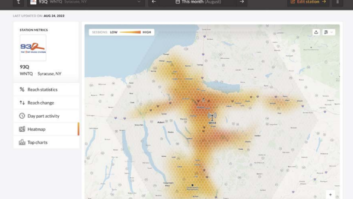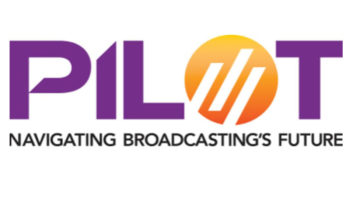This story has been updated to reflect additional news from late Friday.
Calling the commission’s decisions “faulty” and “divorced from current competitive realities,” the National Association of Broadcasters formally is asking the Federal Communication Commission to reevaluate its stance on media ownership.
The NAB likely feels that by the time the commission gets around to considering this, this formal request — filed as a formal petition for reconsideration with the FCC on Dec. 1 — will get a more sympathetic hearing under a Republican-led commission and a Trump administration, which has stated that easing regulatory burdens on businesses is a priority.
Back in August, the FCC adopted an order retaining the rules surrounding broadcast ownership; in the months since, the NAB has urged the commission to reconsider major aspects of the order. In the petition for reconsideration filed on Dec. 1, the NAB asks the commission to reverse its stance on several issues, including the ban on print newspaper/broadcast cross-ownership and the restrictions on radio/TV cross-ownership.
“The vast and continuing changes across the media landscape dictate that [these rules] be eliminated or substantially loosened,” the NAB wrote in its filing. The association said that FCC has not fully recognized “tectonic” changes that have been wrought by the internet, the emergence of OTT services and the expanded influence of cable and satellite. These factors have changed the media landscape, and the FCC’s decision to adopt an order that retained those long-standing broadcast ownership rules is “untenable.”
“The order in no way represents the ‘fresh look’ at the media marketplace [required by the 1996 Telecommunications Act] to ensure that the rules keep pace with competitive changes,” the NAB wrote.
The rules limit broadcasters’ ability to compete and harm local stations’ ability to improve services that consumers value, it said. “For stations and their services to survive, let alone thrive, broadcasters must be permitted to achieve economies of scale and scope, particularly in their provision of local news.”
When it comes to the restrictions on radio/TV cross-ownership, the NAB said the commission “has ignored the transformation in how Americans obtain, create and share news and information through Internet websites, social media and applications [and] applies an irrational double-standard in analyzing the sources that contribute to viewpoint diversity …”
The NAB says it sees a flip-fop: The commission has been saying since the 1970s that radio plays a less significant role in promoting viewpoint diversity; yet now the media ownership order “unjustifiably reverses course” by “concluding that radio contributes to viewpoint diversity to an extent sufficient to maintain both radio cross-ownership restrictions.”
The order’s sudden determination that radio now plays a meaningful role in providing viewpoint diversity in local markets directly contradicts past FCC decisions, the NAB believes. “Because radio’s alleged contribution to diversity in local markets was the only basis for retaining the newspaper/radio and radio/TV cross-ownership rules, [the] retention [of the rule] is arbitrary and capricious.”
Encouraging viewpoint diversity was one reason the FCC voted to retain the radio/TV cross-ownership restrictions. In statement released by Chairman Tom Wheeler’s office earlier this year, he said “our analysis indicates that the ownership restrictions remain necessary in the public interest.”
The issue of media ownership has been of prime importance to the NAB. In November, the association took the FCC to court over its quadrennial media ownership review by filing an appeal in the U.S. Court of Appeals for the D.C. Circuit. That is the the principal court of jurisdiction for FCC decisions.
But parties cannot seek reconsideration at the FCC while petitioning against the same order through the courts. So on Dec. 2, the NAB moved to withdraw the November court petition and instead filed a motion intervene as a “party in interest” in Prometheus Radio’s challenge of the FCC’s media ownership order.
The NAB also pressed the FCC to create an incubator program that would promote diversity of ownership.
In November, the NAB moved to sue the FCC over its quadrennial media ownership regulatory review.










